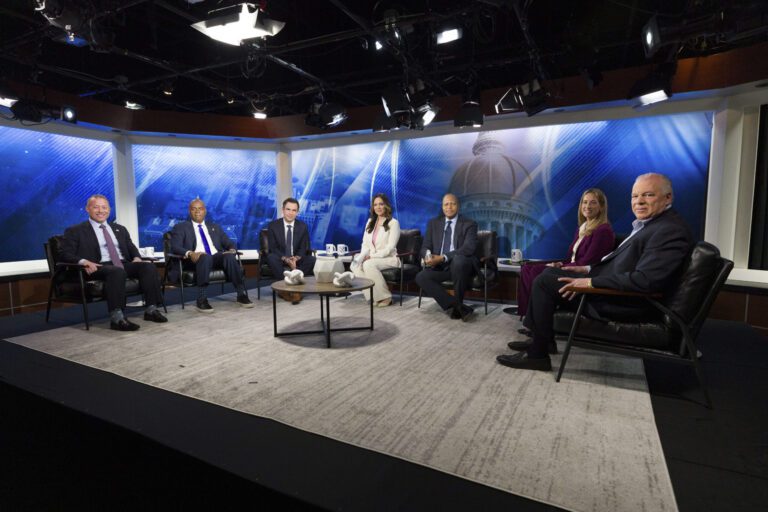New Jersey Gubernatorial Primary: A Battle for the Future in the Trump Era
As voters prepare to head to the polls in New Jersey this Tuesday, they will decide on the Democratic and Republican candidates vying for the governorship. The stakes couldn’t be higher, especially in a state that has shown a significant rightward shift over the past four years.
Republicans: Ciattarelli’s Strong Lead
On the Republican side, former state representative Jack Ciattarelli, the 2021 gubernatorial nominee, stands out as the frontrunner. Since announcing his candidacy last year, Ciattarelli has secured the endorsement of Donald Trump, which has solidified his position in the race. Polls show Ciattarelli leading his nearest primary opponent by at least 25 points.
Key Points:
- Ciattarelli narrowly lost the 2021 election to Governor Murphy by just three points.
- New Jersey swung heavily toward the Republicans, with President Joe Biden winning the state by only six points in the last election.
Democrats: A Competitive and Contentious Primary
With Governor Murphy exiting office, a host of prominent New Jersey Democrats have entered the race. Leading candidates include:
- Congresswoman Mikie Sherrill: Presenting herself as the candidate who can secure a Democratic victory.
- Newark Mayor Ras Baraka: Gaining traction after a controversial incident involving his arrest.
- Jersey City Mayor Steven Fulop: An emerging figure in New Jersey politics.
Recent Developments:
- The Democratic primary has turned increasingly negative as candidates vie to establish themselves as the strongest challenger to Ciattarelli.
- According to local analysis, the Republican Party has outperformed Democrats in new voter registrations, adding 37,000 voters compared to the Democrats’ 9,700.
Voter Registration Trends: A Shift Towards Republicans
Between the 2021 gubernatorial election and now, the Republican Party has seen a substantial increase in registered voters across 20 of New Jersey’s 21 counties:
- Republicans: +37,000 registered voters
- Democrats: +9,700 registered voters
In fact, 17 counties now have fewer registered Democrats than in the last election cycle, pointing toward a potentially challenging environment for Democratic candidates.
A Changing Political Landscape
Gubernatorial races in New Jersey and Virginia are often seen as a referendum on the presidency. Historical patterns show that the party in the White House typically struggles in these off-year elections:
- 2009: Obama’s party lost both gubernatorial seats.
- 2017: Both states voted Democratic.
In this election cycle, Trump’s influence looms large. Baraka has capitalized on recent controversies to frame himself as a defender of working-class families against Trump-era policies.
Candidates’ Campaign Strategies
Each candidate is carving out a unique path in their campaigns:
- Ras Baraka: Emphasizes an ultra-liberal vision with proposals such as reparations and a universal basic income.
- Mikie Sherrill: Positions herself as the candidate who remains the best chance for Democrats to thwart a Republican win. Her campaign recently launched an ad stating, "I am the Democrat Republicans fear."
Recent Polling Insights
New polling data reveal a tight race within the Democratic primary:
- Mikie Sherrill: 28%
- Ras Baraka: 11%
- Steven Fulop: 11%
Baraka’s recent struggles only exemplify the turbulent landscape as Democrats scramble to unify their base against a resurgent Republican Party.
Conclusion: What Lies Ahead for New Jersey
As the primary approaches, the outcomes will set the tone for one of the most critical gubernatorial races in recent memory. Given the dramatic shift in voter sentiment toward the right, Democratic candidates must channel a unified message if they hope to reclaim the governor’s mansion in November.
Understanding these trends is crucial for anyone interested in New Jersey’s evolving political landscape. For detailed information on the candidates, voter registration statistics, and analysis, consider following local news outlets such as NJ.com and Politico.


